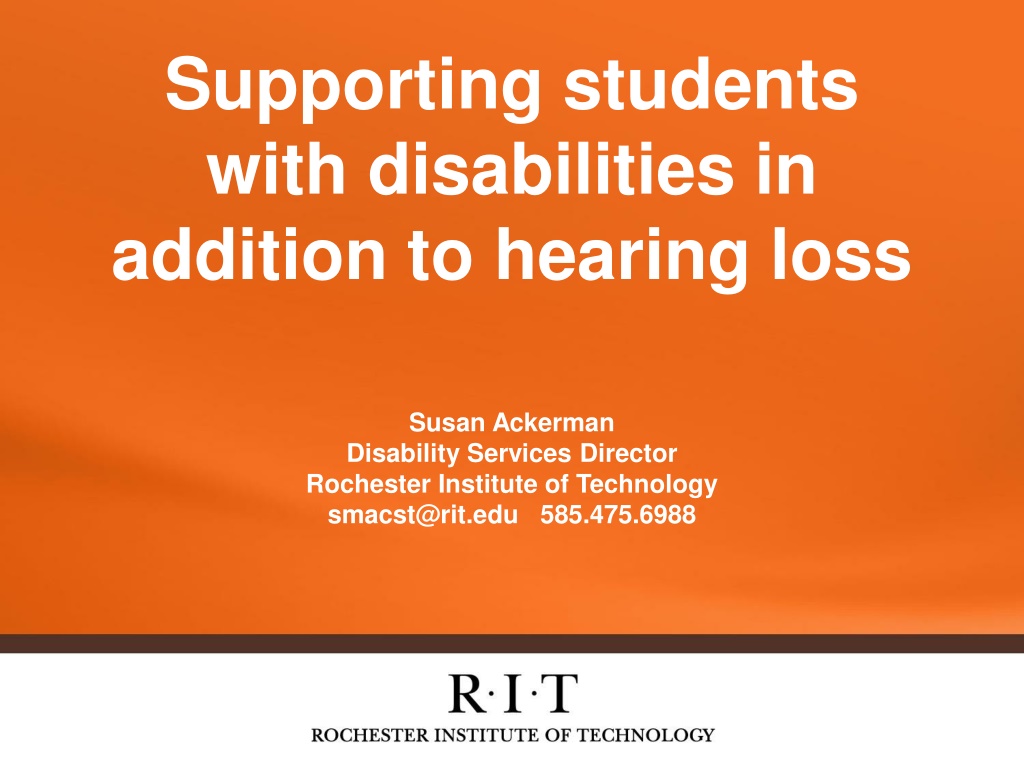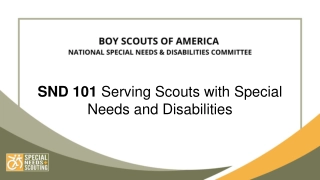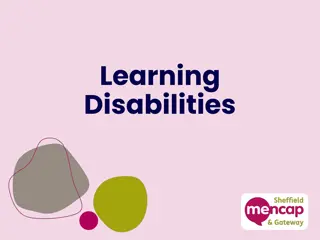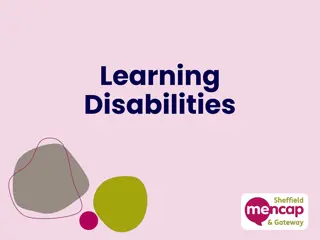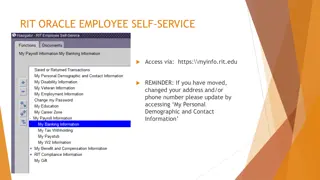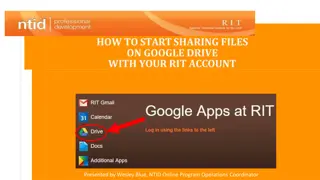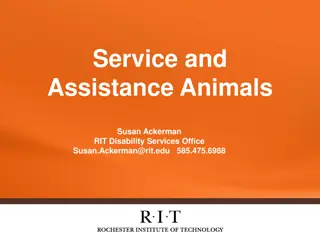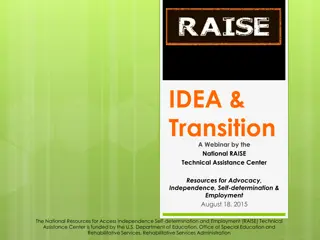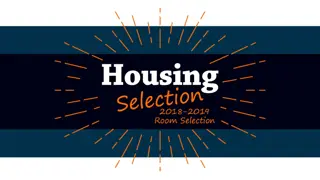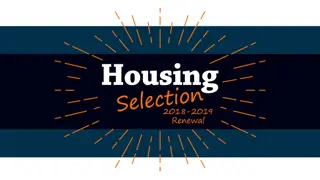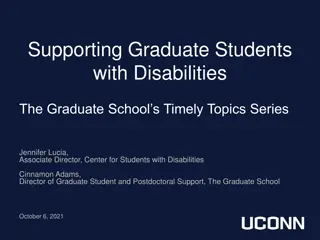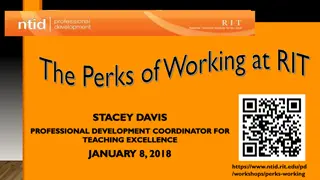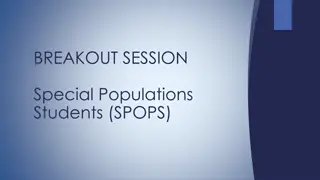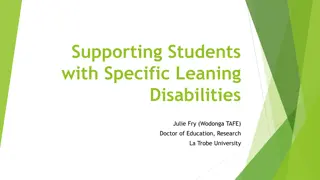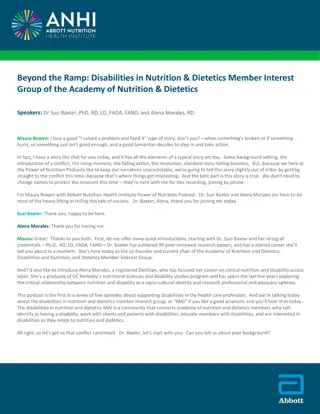Supporting Students with Disabilities at RIT: A Comprehensive Guide
Gain insights into supporting students with disabilities at Rochester Institute of Technology (RIT), focusing on academic adjustments, types of disabilities, communication of adjustments, and management of student needs. Discover the key roles, challenges, and considerations in providing equal access to education for students with disabilities.
Download Presentation

Please find below an Image/Link to download the presentation.
The content on the website is provided AS IS for your information and personal use only. It may not be sold, licensed, or shared on other websites without obtaining consent from the author. Download presentation by click this link. If you encounter any issues during the download, it is possible that the publisher has removed the file from their server.
E N D
Presentation Transcript
Supporting students with disabilities in addition to hearing loss Susan Ackerman Disability Services Director Rochester Institute of Technology smacst@rit.edu 585.475.6988
Objective of today: Give you information and invite conversations about: Purpose of academic adjustments Types of additional disabilities Communication of adjustments Disability Service Agreement (DSA) Delivery of adjustments Management of student needs (Request process for adjustments) (Determination of adjustments)
RIT Disability Services Office Location: SAU room 1150 Staff: Susan Ackerman- Director Shelley Zoeke- Asst. Director Alyson Jones- Staff Assistant
Purpose of academic adjustments Make sure students are not discriminated due to their disability Level the playing field Insure equal access (Access; not success)
Genetic syndromes NTID students have Usher s Syndrome NF1 and NF2 Waardenburg Syndrome Charge Syndrome Charcot-Marie-Tooth Goldenhar Syndrome and others .. Other medical concerns Cerebral Palsy
These students usually have complicated situations Involve multiple systems Comorbid - more than one diagnosis Getting correct adjustments in place sometimes takes time Incomplete documentation College setting is different from K-12 Student is now responsible to advocate
Disability Adjustments (Accommodations, alterations, modifications ) How is the student s functioning affected? What do they need for equal access? Academics (on the DSA) oTests, classroom Housing Dietary Transportation
What adjustments does the student need? Listed on DSA What adjustments is the instructor required to provide? Listed on DSA What else is the instructor required to do? Nothing What else should the instructor do? Good question .
Key point Student has to communicate with instructor
Or should this be stated: Student and instructor have to communicate
What else should the instructor do? Provide extra help inside, outside class Refer to support personnel Refer to DSO How can the instructor meet the needs of everyone in the class? Universal design Sound teaching strategies Be flexible and use common sense?
Classroom ideas, standard practices Chair arrangement? Instructor stay in one place while lecturing? Classroom lights left on; instructor in lit area; instructor not in front of window? Students speaking- central location, take turns, identify themselves? Dark, legible print on white board? Printed and projected materials- print quality, white space, no clutter? Use myCourses- materials posted before class?
What if the DSA is incomplete? Please refer the student back to the DSO You are having trouble with XXXXX; go talk to DSO about that . Please communicate your thoughts, observations with DSO- we invite your input we may contact you .. Please do not tell students the specific adjustment you feel they need; allow us to make that determination
Example: Student with Ushers Syndrome Functional concerns stated by student: Deaf Usher s Syndrome poor night vision Information provided by student: Regular size print OK; reading OK Can t see small print on board Prefer dark colors on board
Student with Ushers (cont) Request made by student: Trouble seeing print on the board (need someone to take notes) Trouble seeing in the dark (need guide)
Student with Ushers (cont) Documentation: Special Education Eligibility Report Diagnosis of Usher s; Deafblind; significant visual field reduction, night blindness Problems with: projected materials; materials with lack of high contrast; classmates signing in discussions; adjusting to changes in lighting; night vision; daytime and nighttime mobility Able to read regular print now, but vision will most likely decline
Student with Ushers (cont) Adjustments: (originally and added over time) Academic (established early in first semester) Low vision monitor, LV interpreter, LV assistant Dark print on whiteboard Note-taking Housing Single room (added year 3) Transportation Use of AVS (added year 2)
Examples of other adjustments used by students with Usher s Syndrome View videos on laptop or monitor in close proximity to seat Photograph notes on board Assistance with performing tasks for chemistry lab Class materials made available on specific color of paper, electronically
Academic adjustment request process Submit a request to Disability Services Office: Hard copy or online form (www.rit.edu/dso) Submit documentation to DSO: Diagnosis Description of current level of functioning Suggestions for accommodations Discuss request with Susan or Shelley in DSO
Disabilities in addition to hearing loss Learning Disabilities (LD) Attention Deficit Disorders (ADHD, ADD) Autism Spectrum Disorders (ASD) Medical conditions (such as Cerebral Palsy, genetic syndromes, cancer survivor) Mental health conditions (such as diagnosed depression, bi-polar) Vision impairments (blind, Deaf-blind, low vision)
Documentation for additional disabilities Learning Disabilities: a recent psychological evaluation ADHD: recent psychological evaluation or letter from treating physician Autism Spectrum Disorders: recent psychological evaluation and/or letter from treating qualified professional Medical or mental health conditions: letter from treating physician or qualified professional Vision: vison report Send this to the RIT Disability Services Office
